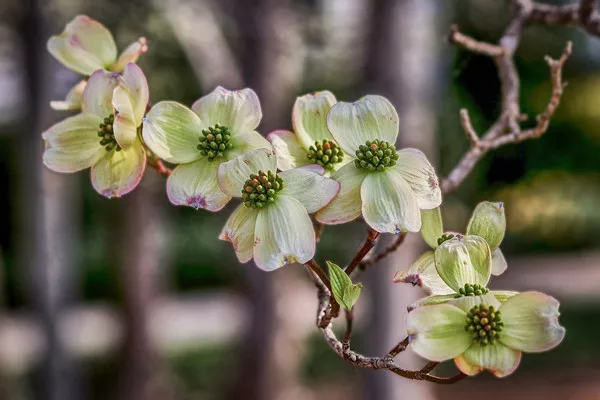Maintaining a thriving garden requires a delicate balance between nurturing your plants and protecting them from potential threats, particularly pests. While chemical pesticides are commonly used, there is a growing interest in natural and sustainable approaches to pest control. Certain plants possess natural properties that repel pests, offering an eco-friendly and aesthetically pleasing solution to keep your garden healthy.
Lavender: Aromatic Defender Against Pests
Lavender (Lavandula) is not only prized for its fragrant blooms and soothing properties but also for its effectiveness in repelling pests. The strong scent of lavender is known to deter mosquitoes, flies, and moths. Planting lavender strategically around your garden not only adds a touch of beauty but also acts as a natural barrier against unwanted pests. Consider placing lavender near entrances to your home or areas where you frequently gather to enhance its protective benefits.
Basil: Culinary Herb with Pest-Repelling Powers
Basil (Ocimum basilicum), a popular culinary herb, does more than just add flavor to your dishes—it also serves as a powerful ally in pest control. The aromatic oils in basil, including compounds like citronellol and linalool, have insect-repelling properties. Planting basil alongside susceptible crops can help protect them from pests like mosquitoes, flies, and certain types of beetles. Additionally, basil can enhance the flavor of nearby vegetables and fruits, making it a valuable companion plant.
Marigold: Bright Blooms, Strong Defense Against Pests
Marigolds (Tagetes) are renowned for their vibrant colors and ability to brighten up gardens, but their pest-repelling properties make them even more valuable. Marigolds contain compounds like pyrethrin, a natural insect repellent often found in commercial insecticides. Planting marigolds in and around your garden can deter nematodes, aphids, and other soil-dwelling pests. These cheerful flowers are particularly effective when interplanted with vegetables, providing both aesthetic appeal and pest protection.
Chrysanthemum: Natural Source of Pyrethrin
Chrysanthemums, commonly known as mums, contain pyrethrin, a natural insecticide widely used in pest control products. The presence of pyrethrin in chrysanthemums makes them effective in repelling a variety of pests, including mosquitoes, roaches, and ants. While chrysanthemums add beauty to gardens with their diverse flower forms and colors, it’s essential to note that pyrethrin can be harmful to beneficial insects as well. Consider using chrysanthemums strategically in areas where targeted pest control is needed.
Rosemary: Fragrant Herb with Pest-Repellent Properties
Rosemary (Rosmarinus officinalis) is not just a flavorful herb for culinary use; it also possesses natural pest-repellent properties. The strong scent of rosemary can deter pests such as mosquitoes, cabbage moths, and carrot flies. Planting rosemary near vegetable crops or in outdoor seating areas can help create a protective barrier against flying and crawling pests. Additionally, rosemary is a hardy and drought-tolerant plant, making it a low-maintenance choice for gardens.
Mint: Aromatic Pest Deterrent for Gardens
Mint varieties, including spearmint and peppermint, are aromatic herbs that can act as natural pest deterrents in gardens. The strong scent of mint is known to repel ants, rodents, and certain flying insects. Planting mint strategically around the perimeter of your garden or near entry points to your home can help keep pests at bay. However, it’s important to contain mint growth, as it has a tendency to spread rapidly and can become invasive.
Nasturtium: Edible Flowers with Pest-Repelling Powers
Nasturtiums (Tropaeolum majus) are not only known for their vibrant, edible flowers but also for their ability to repel pests in the garden. These colorful flowers release compounds that deter aphids, whiteflies, and squash bugs. Nasturtiums are particularly beneficial when planted near susceptible crops, serving as sacrificial plants that attract and repel pests away from more valuable vegetation. Their peppery-flavored leaves and flowers also add a unique culinary element to salads and dishes.
Garlic: Culinary Staple with Insect-Repelling Qualities
Garlic (Allium sativum), a versatile culinary staple, possesses insect-repelling qualities that can benefit your garden. The pungent aroma of garlic is known to deter a variety of pests, including aphids, cabbage worms, and spider mites. Planting garlic strategically among vegetable crops or ornamental plants can create a protective barrier. Additionally, garlic has the added advantage of being a natural fungicide, providing dual protection against both pests and certain fungal diseases.
Petunia: Colorful Blooms with Pest-Repelling Benefits
Petunias (Petunia spp.) are well-loved for their vibrant blooms and cascading growth habits, but they also offer pest-repelling benefits. Petunias contain compounds that deter aphids, hornworms, and other common garden pests. Planting petunias in hanging baskets, containers, or as border plants can help protect neighboring plants from potential infestations. Their wide range of colors makes petunias a versatile and attractive addition to gardens.
Dill: Herbaceous Companion Against Pests
Dill (Anethum graveolens), a herbaceous annual herb, serves as an excellent companion plant in the garden, providing both culinary uses and pest-repelling benefits. The feathery leaves of dill release a strong aroma that deters pests such as aphids and spider mites. Intercropping dill with vegetables like tomatoes and cabbage can help protect them from common garden pests. Additionally, dill attracts beneficial insects like ladybugs and predatory wasps, contributing to a balanced and healthy garden ecosystem.
Chamomile: Soothing Herb with Pest-Repelling Properties
Chamomile (Matricaria chamomilla) is known for its soothing properties, often used in herbal teas for relaxation. Beyond its calming effects, chamomile possesses pest-repelling properties that can benefit your garden. Planting chamomile near susceptible plants can deter pests such as aphids, ants, and cabbage worms. The small, daisy-like flowers of chamomile also attract beneficial insects, including hoverflies and parasitic wasps, contributing to natural pest control.
Conclusion
In conclusion, incorporating plants with pest-repelling properties into your garden not only adds beauty and diversity but also creates a natural defense against common pests. From aromatic herbs like lavender and basil to colorful flowers like marigolds and petunias, these plants offer an eco-friendly alternative to chemical pesticides. By strategically interplanting these natural guardians and considering their companion planting benefits, you can foster a balanced and thriving garden ecosystem. Embrace the power of nature’s pest control and enjoy the benefits of a healthy and vibrant garden.


